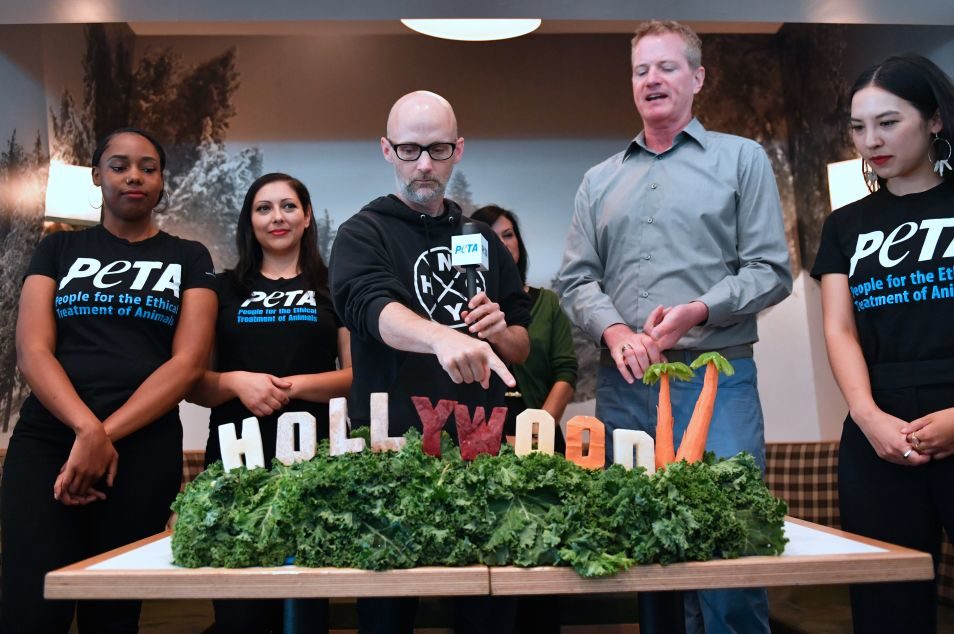Is your January still dry? Many of us begin a new year with the best of intentions and make resolutions in the hope of improving ourselves. Giving up alcohol for a month is a popular one — goodness knows why — but ‘Veganuary’, when you take up veganism until February 1, is an equally trendy option.
Veganism is ‘cruelty free’ and is good for both you and the planet. What’s not to love? Support for the diet has gone mainstream with the US seeing a 600 percent increase in people identifying as vegan over the past three years. But just how ethical is it?
We’re always told that high consumption of meat and dairy is fueling global warming. An Oxford University study found that the permanent adoption of veganism would be the ‘the single best way’ to reduce our environmental impact and could lower a person’s carbon footprint by 73 percent. Rightly so, people are increasingly concerned with the welfare of animals, but removing all traces of animals from your diet isn’t necessarily the solution to the problem of animal exploitation and abuse. Veganism might not be as rosy as it seems.
Human beings are terrible for the planet. Even conscientious eco-warriors can’t seem to get it right. Take Prince Harry, who has vowed to only have two children as any more would be irresponsible for the planet. That noble action was counteracted by his frequent trips on a private plane. Thankfully whether or not to fly privately is not a conundrum most of us peasants are faced with, but surely there are smaller, greener choices we can make that would make Greta proud?
The market for ‘alternate milks’ has exploded in the past five years. Trading dairy milk (formally known as milk) for ‘plant-based’ is supposedly a straightforward way of cutting down your carbon footprint. Almond milk was one of the first to come to the market and has seen a 250 percent increase in demand over the past five years. But it takes a gallon of water to produce a single almond. More than 80 percent of almonds are grown in California which has had some of the worst droughts on record over the past decade. And the mass expansion of almond farming is estimated to have resulted in the death of 50 billion bees in California alone. Talk about a buzz kill.
OK so almond is out: what about oat milk, which supposedly performs well on sustainability metrics? The Swedish brand Oatly was met with fury after selling a $274 million stake to Blackstone, a firm with a significant investment in the deforestation of the Amazon rainforest.
Luckily there are other alternatives. Coconut milk is also widely available and grown in the drought-free tropics. But a recent investigation by PETA found monkeys are chained and abused and used as ‘slaves’ to pick your coconuts, so that’s off the menu too. Water it is, then?
The catastrophic impact of coronavirus and the resulting lockdown on restaurants is well documented, but farmers in America have been hit hard too, despite the mass hysteria about food shortages. In April, Dairy Farmers of America estimated that farmers were throwing away 3.7 million gallons of unsold milk each day. A single chicken processor was destroying 750,000 eggs every week as the demand from restaurants, cafés and schools disappeared overnight.
One of the few benefits of the pandemic has been an increased effort in supporting local businesses. Surely at this point, animal rights activists and eco warriors alike can see the argument for going old school and buying dairy? It supports real, human farmers and eradicates the need to ship coconut milk harvested by monkey slaves across the planet. But nope. PETA believes consuming milk is never acceptable, as it denies cows the right to ‘nurture their young and form lifelong friendships with one another’. Cows are people too, guys.
***
Get a digital subscription to The Spectator.
Try a month free, then just $3.99 a month
***
Animal imitation products aren’t the only problematic food. At first glance, the avocado may seem like a more ethical breakfast choice than going for bacon. But the demand for avocados has given them the nickname oro verde (green gold) among Mexican cartels, who now favor planting the lucrative fruit over marijuana.
None of this is to say consuming animal produce is without its issues. In the US, 99 percent of meat is factory-farmed. There is something deeply concerning (not to mention unconstitutional) about the ‘ag-gag’ laws which criminalize the undercover investigation of conditions in meat farms. But surely a blanket ban isn’t the best approach to a complex ethical issue like the consumption of animal products. Take Britain for example, a nation consisting of wet grassland, good for little other than grazing animals. Can you really argue that it’s more ethical to import an avocado from 5,000 miles away and inadvertently support a Mexican cartel than it is to buy a pack of bacon from your local farmer?
Increased transparency highlights how tricky it is to make moral choices when it comes to what we consume. It makes you wonder whether a completely ethical meal is ever possible. At least those dullards doing Dry January have less to worry about.


















